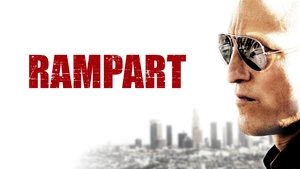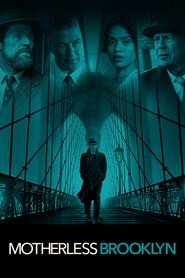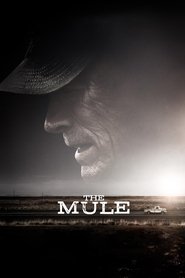I'm sure if you ask Leonardo DiCaprio and the mastermind who's often filming him on the other side of the camera, Martin Scorsese, they'd tell you that they believe in destiny. The amazing duo have already collaborated on four films since 2002, demonstrating their somewhat cosmic connection. After a critically acclaimed directorial debut in which his supporting star Woody Harrelson received an Oscar nomination, Oren Moverman has finally made a follow up to his indie hit The Messenger. Taking a page out of the Scorsese handbook of directing, Moverman once again teams up with Harrelson for his crooked cop tale, Rampart. This time, the result is un-Scorsese-like.
Rampart is set in 1999 Los Angeles where a long time renegade cop named David Brown (played by Harrelson) sees himself pitted against a city of misfits. Refusing to give up his merciless tactics and methods of coercion, Brown ultimately ends up at the center of a videotaped police brutality scandal. With legal fees mounting and his financial state crumbling, the corrupt officer sees no boundary to the lengths he must go in order to survive the ordeal.

Rampart is a cluttered journey into the mind of an unstable police officer. Almost immediately, Moverman introduces the audience to the chaotic personal life of David Brown. With two children born to different mothers (that are also sisters), Brown's unusual home life sets the foundation for the muddled story line and assortment of ideas that is Rampart. Any sense of solace comes at the hands of the film's leading star, Woody Harrelson. Even with the aid of such a gifted actor, Harrelson still only manages to make this jumbled mess a moderately tolerable experience. Furthermore, David Brown's character has a sense of charisma that should have been utilized differently to impact the story. However, rather than attempting to humanize the corrupt officer, Oren Moverman creates a completely unlikable protagonist. In doing so, the director unsuccessfully sends the movie in a dark, downward spiral of unspeakable depths. Therefore, Rampart is a depressing tale that offers very little reward.

Despite the film's disarrangement of ideas and structure, Rampart does prove to be mildly entertaining. Harrelson's onscreen effectiveness unquestionably captivates the audience. And since his character knows no boundaries, this tiny little fact disallows the audience to sacrifice its attention. All eyes will stay peeled to the screen for the film's 108 minute duration, yet Rampart's final moments are perhaps the most dissatisfying. Hence, be warned. There's no light at the end of the tunnel here.
For me, Rampart was love at first theatrical trailer. As previews often do, Moverman's tale of corruption seemed too good to be true. And with the amazing success of his first collaboration with Harrelson, the possibilities were endless. However, Rampart is a below-average and clueless effort. If you're expecting an action-packed thrill ride revolving around a crooked cop (much like Training Day or The Departed), you're in the wrong stratosphere. Rampart loses its purpose early on and, unfortunately, never finds its way back.
-
 NameWoody HarrelsonCharacterDave Brown
NameWoody HarrelsonCharacterDave Brown -
 NameRobin WrightCharacterLinda Fentress
NameRobin WrightCharacterLinda Fentress -
 NameSigourney WeaverCharacterJoan Confrey
NameSigourney WeaverCharacterJoan Confrey -
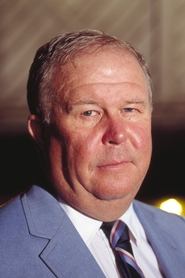 NameNed BeattyCharacterHartshorn
NameNed BeattyCharacterHartshorn -
 NameBen FosterCharacterGeneral Terry
NameBen FosterCharacterGeneral Terry -
 NameIce CubeCharacterKyle Timkins
NameIce CubeCharacterKyle Timkins -
 NameAnne HecheCharacterCatherine
NameAnne HecheCharacterCatherine -
 NameCynthia NixonCharacterBarbara
NameCynthia NixonCharacterBarbara -
 NameBrie LarsonCharacterHelen
NameBrie LarsonCharacterHelen -
 NameSteve BuscemiCharacterBill Blago
NameSteve BuscemiCharacterBill Blago -
 NameJon BernthalCharacterDan Morone
NameJon BernthalCharacterDan Morone -
 NameStella SchnabelCharacterJane
NameStella SchnabelCharacterJane -
 NameRobert WisdomCharacterCaptain
NameRobert WisdomCharacterCaptain -
 NameAudra McDonaldCharacterSarah
NameAudra McDonaldCharacterSarah -
 NameJon FosterCharacterMichael Whittaker
NameJon FosterCharacterMichael Whittaker -
 NameMatt McTigheCharacter30-Year-Old Cop
NameMatt McTigheCharacter30-Year-Old Cop -
 NameRubén GarfiasCharacterPharmacy Security Guard
NameRubén GarfiasCharacterPharmacy Security Guard -
 NameDeadleeCharacterPharmacy Punk
NameDeadleeCharacterPharmacy Punk -
 NameDominic FloresCharacterLatino Detective
NameDominic FloresCharacterLatino Detective -
 NameSammy BoyarskyCharacterMargaret
NameSammy BoyarskyCharacterMargaret -
 NameBilly HoughCharacterPiano Player
NameBilly HoughCharacterPiano Player -
 NameHarriet Sansom HarrisCharacterStacy Cranston
NameHarriet Sansom HarrisCharacterStacy Cranston -
 NameRachel Ann MullinsCharacterDominatrix (uncredited)
NameRachel Ann MullinsCharacterDominatrix (uncredited)
-
 NameOren MovermanJobDirector
NameOren MovermanJobDirector -
 NameDickon HinchliffeJobOriginal Music Composer
NameDickon HinchliffeJobOriginal Music Composer -
 NameBen FosterJobProducer
NameBen FosterJobProducer -
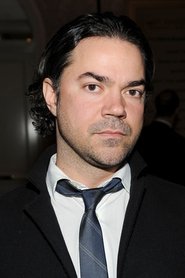 NameLawrence IngleeJobProducer
NameLawrence IngleeJobProducer -
 NameKen KaoJobProducer
NameKen KaoJobProducer -
 NameOren MovermanJobScreenplay
NameOren MovermanJobScreenplay -
 NameJames EllroyJobScreenplay
NameJames EllroyJobScreenplay -
 NameLaura RosenthalJobCasting
NameLaura RosenthalJobCasting -
 NameRachel TennerJobCasting
NameRachel TennerJobCasting -
 NameBobby BukowskiJobDirector of Photography
NameBobby BukowskiJobDirector of Photography -
 NameCatherine GeorgeJobCostume Design
NameCatherine GeorgeJobCostume Design -
 NameLinda DowdsJobMakeup Department Head
NameLinda DowdsJobMakeup Department Head -
 NameDavid LloydJobSet Dresser
NameDavid LloydJobSet Dresser -
 NameJay RabinowitzJobEditor
NameJay RabinowitzJobEditor -
 NameDavid WascoJobProduction Design
NameDavid WascoJobProduction Design -
 NameSandy Reynolds-WascoJobSet Decoration
NameSandy Reynolds-WascoJobSet Decoration -
 NameAustin GorgJobArt Direction
NameAustin GorgJobArt Direction -
 NameMerrick MortonJobStill Photographer
NameMerrick MortonJobStill Photographer -
 NameJim BlackJobMusic Supervisor
NameJim BlackJobMusic Supervisor -
 NameAriel GoldJobCostume Supervisor
NameAriel GoldJobCostume Supervisor -
 NameTim TrellaJobStunt Coordinator
NameTim TrellaJobStunt Coordinator -
 NameLori GuidrozJobHair Department Head
NameLori GuidrozJobHair Department Head -
 NameScott PetersonJobScript Supervisor
NameScott PetersonJobScript Supervisor -
 NameDottie StarlingJobVisual Effects Supervisor
NameDottie StarlingJobVisual Effects Supervisor -
 NameVenessa De AndaJobArt Department Coordinator
NameVenessa De AndaJobArt Department Coordinator -
 NameCurtis CorbittJobAssistant Property Master
NameCurtis CorbittJobAssistant Property Master -
 NameMary BurtonJobMakeup Artist
NameMary BurtonJobMakeup Artist -
 NameKaren Ruth GetchellJobProduction Supervisor
NameKaren Ruth GetchellJobProduction Supervisor -
 NameBret MayoJobHairstylist
NameBret MayoJobHairstylist -
 NameMike MedinaJobConstruction Coordinator
NameMike MedinaJobConstruction Coordinator -
 NameJennie HarrisJobAssistant Set Decoration
NameJennie HarrisJobAssistant Set Decoration -
 NameLisa LaymanJobKey Makeup Artist
NameLisa LaymanJobKey Makeup Artist -
 NameBenjamin NowickiJobGraphic Designer
NameBenjamin NowickiJobGraphic Designer -
 NameMark HunstableJobAssistant Art Director
NameMark HunstableJobAssistant Art Director -
 NameTim DeLucaJobGreensman
NameTim DeLucaJobGreensman -
 NameAnthony VeaderJobHairstylist
NameAnthony VeaderJobHairstylist -
 NameDebra DensonJobMakeup Artist
NameDebra DensonJobMakeup Artist -
 NameDavid Redier-LinskJobGraphic Designer
NameDavid Redier-LinskJobGraphic Designer -
 NameNoah PlunkettJobGreensman
NameNoah PlunkettJobGreensman -
 NameJoshua BorgeseJobGreensman
NameJoshua BorgeseJobGreensman -
 NameHaley ClauseJobArt Department Assistant
NameHaley ClauseJobArt Department Assistant -
 NameSteven HanksJobGreensman
NameSteven HanksJobGreensman -
 NameWilliam Paul ClarkJobFirst Assistant Director
NameWilliam Paul ClarkJobFirst Assistant Director -
 NameDavid M. HernandezJobGreensman
NameDavid M. HernandezJobGreensman -
 NameSamantha WadeJobKey Hair Stylist
NameSamantha WadeJobKey Hair Stylist -
 NameTimothy KnollJobPainter
NameTimothy KnollJobPainter -
 NameNicholas RakeJobSet Dresser
NameNicholas RakeJobSet Dresser -
 NameCalvin MagnumJobPropmaker
NameCalvin MagnumJobPropmaker -
 NameJason BedigJobLeadman
NameJason BedigJobLeadman -
 NameBo HrupchoJobPainter
NameBo HrupchoJobPainter -
 NameTerry HaskellJobProperty Master
NameTerry HaskellJobProperty Master -
 NamePaul J. LindseyJobPainter
NamePaul J. LindseyJobPainter -
 NameTrevor Champion RogersJobSet Dresser
NameTrevor Champion RogersJobSet Dresser -
 NameJon 'Scooter' CousinsJobBest Boy Grip
NameJon 'Scooter' CousinsJobBest Boy Grip -
 NameEdward ViolaJobDigital Imaging Technician
NameEdward ViolaJobDigital Imaging Technician -
 NameMike BonnaudJobBest Boy Electric
NameMike BonnaudJobBest Boy Electric -
 NameMatt HorochowskiJobDolly Grip
NameMatt HorochowskiJobDolly Grip -
 NameBrian HendricksJobExtras Casting
NameBrian HendricksJobExtras Casting -
 NameJessica AlbertsonJobSet Costumer
NameJessica AlbertsonJobSet Costumer -
 NameJames WrightJobDolby Consultant
NameJames WrightJobDolby Consultant -
 NameGabriel J. SerranoJobSound Re-Recording Mixer
NameGabriel J. SerranoJobSound Re-Recording Mixer -
 NameBrian GallagherJobADR Mixer
NameBrian GallagherJobADR Mixer -
 NameLeslie ShatzJobSound Re-Recording Mixer
NameLeslie ShatzJobSound Re-Recording Mixer -
 NameJason McCormickJobFirst Assistant "A" Camera
NameJason McCormickJobFirst Assistant "A" Camera -
 NameMichael SantopoloJobFoley
NameMichael SantopoloJobFoley -
 NameVasco NunesJobCamera Operator
NameVasco NunesJobCamera Operator -
 NameJohn MangJobDolly Grip
NameJohn MangJobDolly Grip -
 NameJames CoffinJobGrip
NameJames CoffinJobGrip -
 NameScott HatleyJobGrip
NameScott HatleyJobGrip -
 NameLisa PineroJobSound Mixer
NameLisa PineroJobSound Mixer -
 NameMichael TolochkoJobElectrician
NameMichael TolochkoJobElectrician -
 NameMichael BaumanJobGaffer
NameMichael BaumanJobGaffer -
 NameJavier BennassarJobSupervising Sound Editor
NameJavier BennassarJobSupervising Sound Editor -
 NameRobert JacksonJobSupervising Dialogue Editor
NameRobert JacksonJobSupervising Dialogue Editor -
 NameWilliam ClouterJobGrip
NameWilliam ClouterJobGrip -
 NameCarlos DePalmaJobRigging Grip
NameCarlos DePalmaJobRigging Grip -
 NameTravis MacKayJobADR Mixer
NameTravis MacKayJobADR Mixer -
 NameJavier BennassarJobSound Designer
NameJavier BennassarJobSound Designer -
 NameThomas M. DangcilJobElectrician
NameThomas M. DangcilJobElectrician -
 NameMike BlauveltJobFirst Assistant "B" Camera
NameMike BlauveltJobFirst Assistant "B" Camera -
 NameRich KingJobExtras Casting
NameRich KingJobExtras Casting -
 NameMark AveryJobCostumer
NameMark AveryJobCostumer -
 NameBobby JohansonJobADR Mixer
NameBobby JohansonJobADR Mixer -
 NameMichael KoepkeJobGrip
NameMichael KoepkeJobGrip -
 NameWade BarnettJobADR Recordist
NameWade BarnettJobADR Recordist -
 NameAnthony NevarezJobRigging Grip
NameAnthony NevarezJobRigging Grip -
 NameEllen HeuerJobFoley Artist
NameEllen HeuerJobFoley Artist -
 NameBrian DunlopJobFoley Editor
NameBrian DunlopJobFoley Editor -
 NameCharley GilleranJobKey Rigging Grip
NameCharley GilleranJobKey Rigging Grip -
 NameEric JenschJobSecond Assistant "B" Camera
NameEric JenschJobSecond Assistant "B" Camera -
 NameMichael RiveraJobADR Recordist
NameMichael RiveraJobADR Recordist -
 NameMichael LyonJobElectrician
NameMichael LyonJobElectrician -
 NameMichael WitczakJobElectrician
NameMichael WitczakJobElectrician -
 NameFrancine NataleJobElectrician
NameFrancine NataleJobElectrician -
 NameCameron SmithJobElectrician
NameCameron SmithJobElectrician -
 NameBrian BrantonJobGrip
NameBrian BrantonJobGrip -
 NameAndrew TaylorJobGrip
NameAndrew TaylorJobGrip -
 NameTana DubbeJobKey Grip
NameTana DubbeJobKey Grip -
 NamePaul MetcalfJobSecond Assistant "A" Camera
NamePaul MetcalfJobSecond Assistant "A" Camera -
 NameDann FinkJobADR Voice Casting
NameDann FinkJobADR Voice Casting -
 NameCameron DaleJobCostumer
NameCameron DaleJobCostumer -
 NameDavid RaymondJobBoom Operator
NameDavid RaymondJobBoom Operator -
 NameA. Josh ReinhardtJobFoley Mixer
NameA. Josh ReinhardtJobFoley Mixer -
 NameCallie ThurmanJobAssistant Sound Editor
NameCallie ThurmanJobAssistant Sound Editor -
 NameFritz WeberJobGrip
NameFritz WeberJobGrip -
 NameWalter VolpattoJobDigital Intermediate Colorist
NameWalter VolpattoJobDigital Intermediate Colorist -
 NameLauren RitchieJobVisual Effects Producer
NameLauren RitchieJobVisual Effects Producer -
 NameMark A. FreidJobLocation Manager
NameMark A. FreidJobLocation Manager -
 NameMichael KlastorinJobUnit Publicist
NameMichael KlastorinJobUnit Publicist -
 NameElbert Irving IVJobVisual Effects Coordinator
NameElbert Irving IVJobVisual Effects Coordinator -
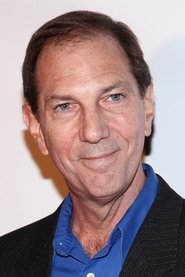 NameRandall BalsmeyerJobTitle Designer
NameRandall BalsmeyerJobTitle Designer -
 NameEric PenderJobCompositor
NameEric PenderJobCompositor -
 NameJim SchultzJobMusic Editor
NameJim SchultzJobMusic Editor -
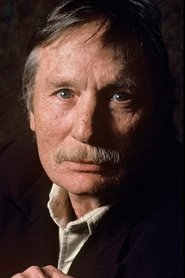 NameEdward BunkerJobIn Memory Of
NameEdward BunkerJobIn Memory Of -
 NameNadia VenesseJobDialect Coach
NameNadia VenesseJobDialect Coach -
 NameMike SelemonJobFirst Assistant Editor
NameMike SelemonJobFirst Assistant Editor -
 NameBart DionJobSpecial Effects Technician
NameBart DionJobSpecial Effects Technician -
 NameTom LambJobCompositor
NameTom LambJobCompositor -
 NameJohn NicolardJobDigital Intermediate
NameJohn NicolardJobDigital Intermediate -
 NamePhilip BecknerJobDigital Intermediate
NamePhilip BecknerJobDigital Intermediate -
 NameSarah CatizoneJobSet Medic
NameSarah CatizoneJobSet Medic -
 NameChad Van BaalbergenJobSpecial Effects Technician
NameChad Van BaalbergenJobSpecial Effects Technician -
 NameCaleb OwensJobCompositor
NameCaleb OwensJobCompositor -
 NameLarz AndersonJobSpecial Effects Coordinator
NameLarz AndersonJobSpecial Effects Coordinator -
 NameSusan AlexanderJobDigital Intermediate Producer
NameSusan AlexanderJobDigital Intermediate Producer -
 NameBrad HoltzmanJobSet Costumer
NameBrad HoltzmanJobSet Costumer -
 NameEddie J. FernandezJobStunts
NameEddie J. FernandezJobStunts -
 NameMax DanielsJobStunts
NameMax DanielsJobStunts -
 NameDorian KingiJobStunts
NameDorian KingiJobStunts -
 NameScott M. HelgertJobStunts
NameScott M. HelgertJobStunts -
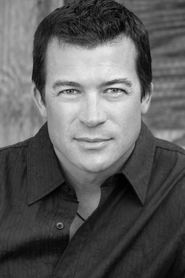 NameJason RodriguezJobStunts
NameJason RodriguezJobStunts -
 NameAlvin ZalameaJobStunts
NameAlvin ZalameaJobStunts -
 NameMarco MoralesJobStunt Double
NameMarco MoralesJobStunt Double -
 NameDomenic BenvenutoJobExecutive Producer
NameDomenic BenvenutoJobExecutive Producer -
 NamePaul CurrieJobExecutive Producer
NamePaul CurrieJobExecutive Producer -
 NameMichael DeFrancoJobExecutive Producer
NameMichael DeFrancoJobExecutive Producer -
 NameMark GordonJobExecutive Producer
NameMark GordonJobExecutive Producer -
 NameGarrett KelleherJobExecutive Producer
NameGarrett KelleherJobExecutive Producer -
 NameLila YacoubJobExecutive Producer
NameLila YacoubJobExecutive Producer












